Important appointments to schedule
Your annual physical exam is just the tip of the iceberg when it comes to doctors’ appointments. Although they’re a good starting point, tests and screenings with specialists are important for disease prevention and early detection, especially for certain age groups. So schedule the right checkups with the help of our scheduling guide for doctors’ appointments you need by decade.
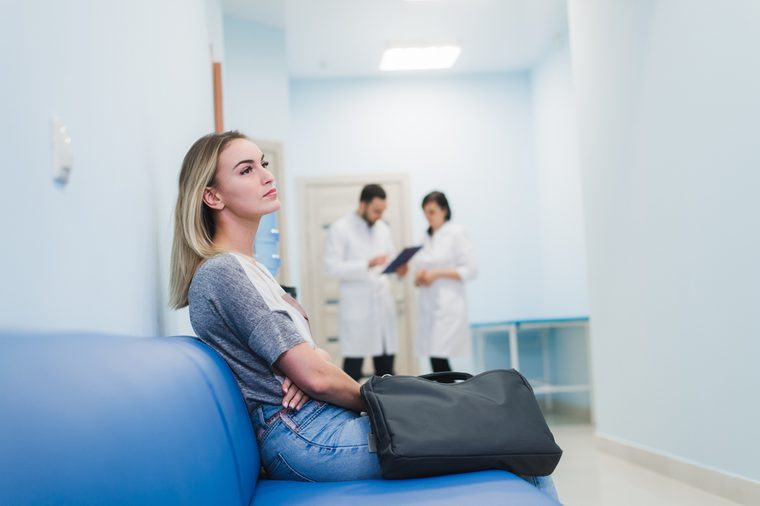
In your 20s: Physical exams
In your 20s, you might feel young and invincible, but regular checkups should be on your to-do list anyway. These visits help your doctor construct a baseline picture of your general health.
“Everybody needs regular assessments for high blood pressure, diabetes, cardiovascular risk, tobacco use, alcohol, drugs, diet, exercise level, vaccinations, presence of depression, HIV, and other risk factors,” says William A. Curry, MD, professor of general internal medicine at the University of Alabama School of Medicine in Birmingham. Most of these assessments can be tackled during a physical with your primary care physician. If you don’t yet have a primary care physician, here are 7 secrets to finding a doctor you can trust.
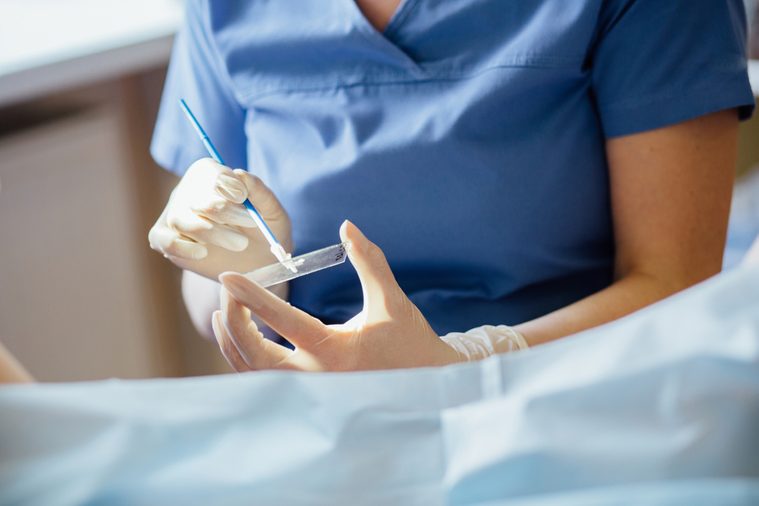
In your 20s: Gynecologic Exams
Women in their 20s should begin pelvic exams, clinical breast exams, and screenings for cervical cancer. Experts also recommend Pap smears, but how often you need one will depend on your personal health history.
“From 21 to 29, a Pap smear is recommended every three years if tests are normal,” says Salena Zanotti, MD, an OB/GYN specialist with the Cleveland Clinic. “From ages 30 to 65, they’re only needed every five years with a human papillomavirus (HPV) co-test if you have no history of abnormal Pap smears.” These are 8 signs of cervical cancer you should never ignore.
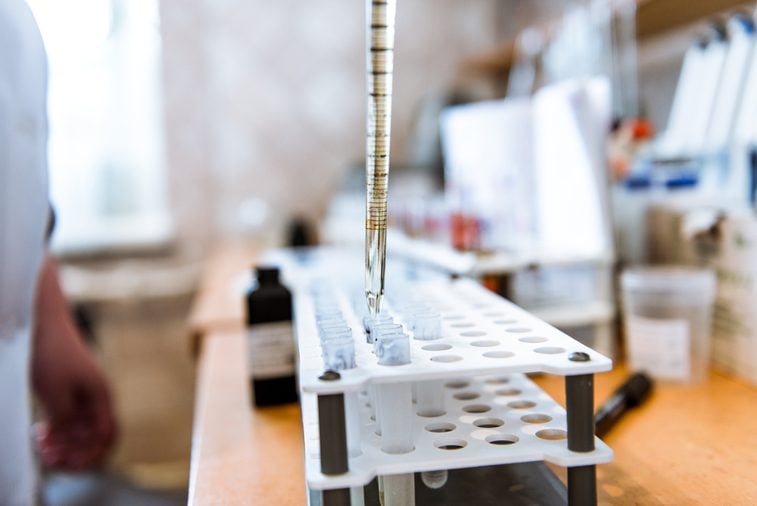
In your 20s: STD screenings
In your 20s or earlier—as soon as you become sexually active—you should start getting regular checkups for sexually transmitted diseases (STDs), according to the U.S. Preventive Services Task Force (USPSTF), a volunteer panel of doctors and nationally-recognized experts that issues guidelines for tests and screenings for Americans. If you change sexual partners before your next annual physical or if you change partners frequently, you should have an STD screening more often. A primary care physician can give you this test, as can gynecologists. STDs are at a record high: Here’s why you might be at risk.
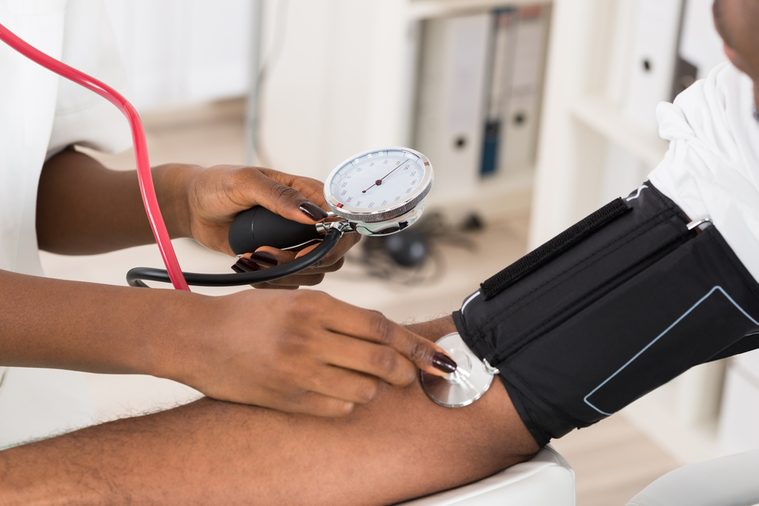
In your 20s: Hypertension screening
The USPSTF recommends every adult over age 18 have regular hypertension, or high blood pressure, screenings, says Tzvi Doron, MD, clinical director of the men’s health clinic Roman in New York City. In the United States, one out of every three adults has high blood pressure. And according to the CDC, there are roughly one out of five people with high blood pressure who don’t know they have it. If left untreated, this condition can lead to heart disease, aneurysms, even stroke. Diagnosis is easy—a blood pressure test can be done in a matter of minutes—but it’s important you’re tested starting at a young age so your doctor can have a baseline reading.
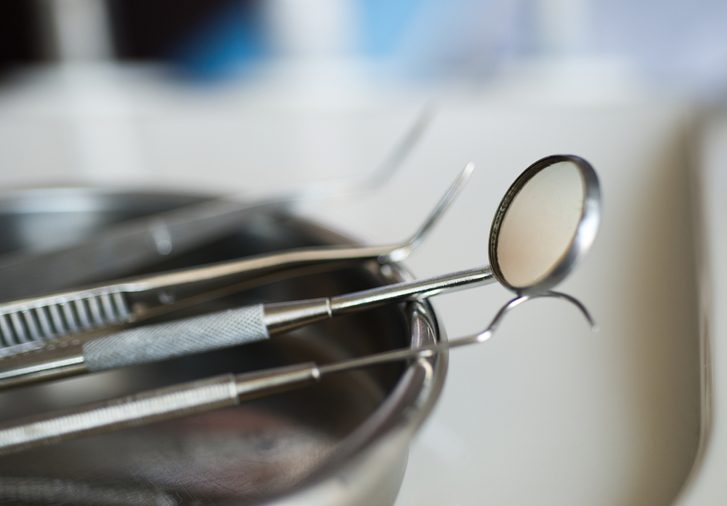
In your 20s: Dental exams
Your teeth are a window into your overall health, and that means regular dental exams and cleanings are important. According to the American Dental Association (ADA), your standard appointment schedule should be a cleaning and oral exam every six months, though the organization recommends tailoring visits to your health status and history. Follow these 10 rules to guarantee healthy, white teeth.
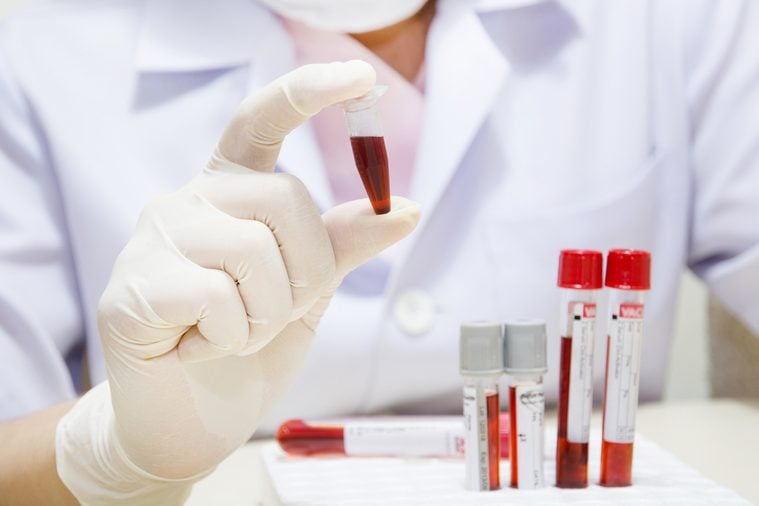
In your 20s: Cholesterol screening
The Centers for Disease Control and Prevention (CDC) recommends every person between 17 and 21 receive a lipoprotein profile. This screening measures your bad (LDL) cholesterol, your good (HDL) cholesterol, and your total cholesterol. The American Heart Association also suggests people begin cholesterol screenings at age 20.
If your first exam is normal, says Dr. Curry, you won’t need another cholesterol screening for five years or more. If your doctor determines you’re at an increased risk of heart attack or stroke, you may need to be checked more often.
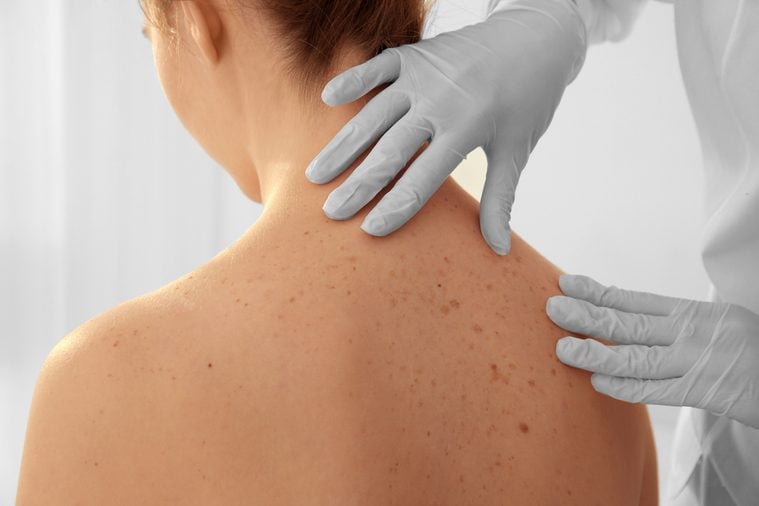
In your 30s: Skin cancer screening
Experts are divided on how often the average person needs a whole-body skin check—the USPSTF has yet to make a recommendation. However, the American Academy of Dermatology believes skin cancer screenings save lives, and they suggest you discuss your sun exposure history with a dermatologist to figure out how often you’ll need your moles examined. But for some, it could make sense to start as young as your 20s. If you have a family history of skin cancer, are fair-skinned, or have developed suspicious moles, you may need skin screenings yearly; others may be able to go less frequently.
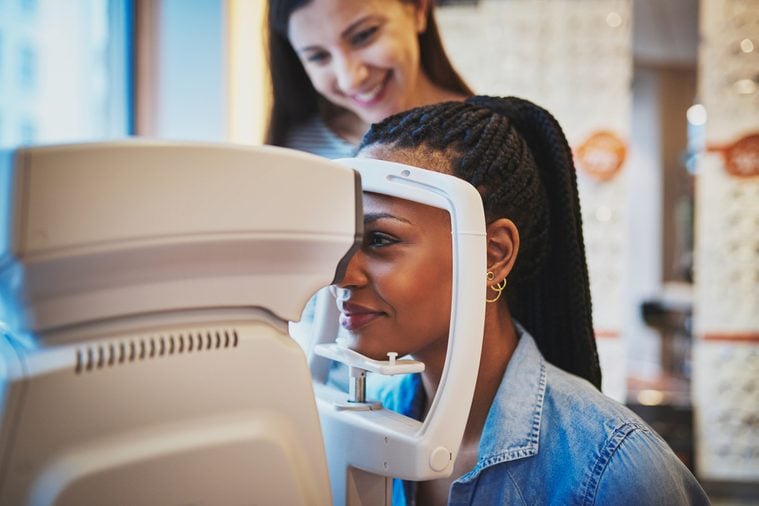
In your 30s: Eye exam
The American Academy of Ophthalmology recommends that you get a baseline eye examination by age 40. But Jeffrey Paccione, MD, an ophthalmologist in New York who works at Jamaica Hospital Medical Center and Lenox Hill Hospital, suggests those screenings could start earlier. “The key at this age is to monitor and be vigilant for any changes in your eyes that might signal a problem,” says Dr. Paccione. “Many eye diseases may not have symptoms in their early stages—such as glaucoma and diabetic retinopathy—but if you pick up a disease or condition early enough, you may able to prevent it from worsening and ever threatening your vision.” Check out these 13 secrets your eye doctor won’t tell you.
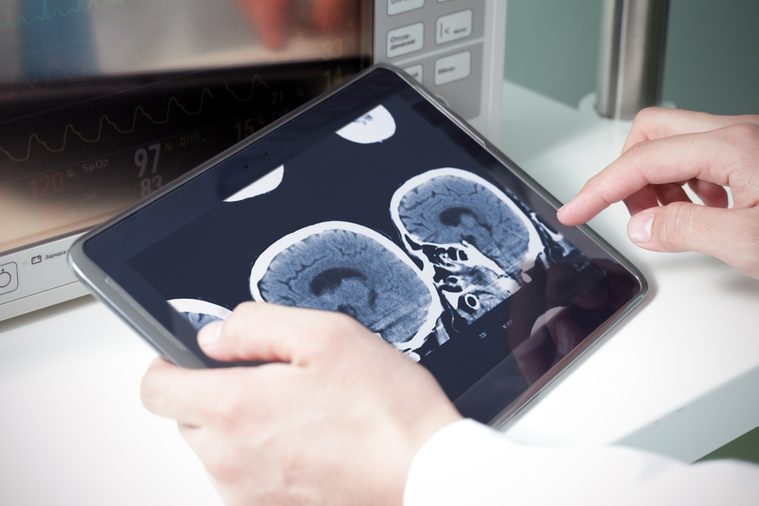
In your 30s: Benchmark brain exam
“Recent studies suggest that degenerative diseases of the brain, such as Alzheimer’s disease and other forms of dementia, are chronically progressive disorders that begin in middle life,” says Philip E. Stieg, PhD, MD, a neurosurgeon and chairman and founder of the Weill Cornell Brain and Spine Center. “Therefore, it would be worthwhile to have a benchmark exam before symptoms begin.”
This exam could include a magnetic resonance imaging (MRI) scan, an MR angiogram, as well as carotid ultrasonography, Stieg says. “Brain health is very dependent upon good circulation, and with these tests, we can confirm that there are no abnormalities.”
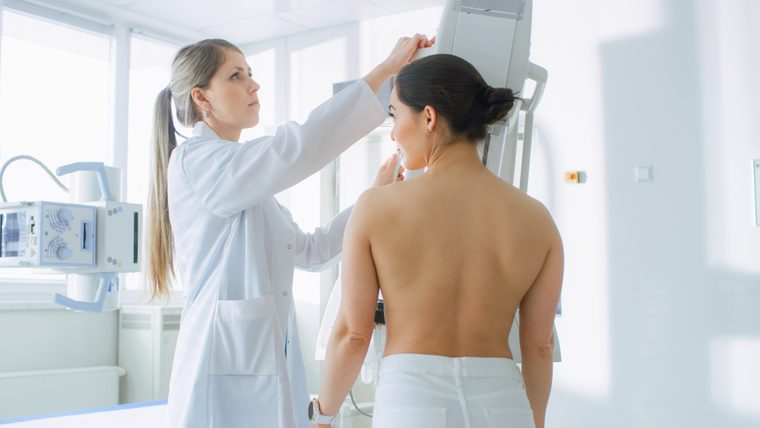
In your 40s: Mammogram
The American College of Obstetrics and Gynecology recommends that women with normal risk of breast cancer start getting mammograms at age 40. However, if you have a first-degree relative (a mother or a sister, for example) with premenopausal breast cancer, you should start mammograms earlier, Dr. Zanotti says.
“After the age of 74, testing is optional and best done at the advice of your physician,” says Morton Tavel, MD, clinical professor emeritus of Medicine at Indiana University School of Medicine. “The USPSTF reports indicate that in addition to unnecessary surgery and anxiety, the risks of more frequent mammograms include a small but significant increase in breast cancer induced by radiation,” he explains.
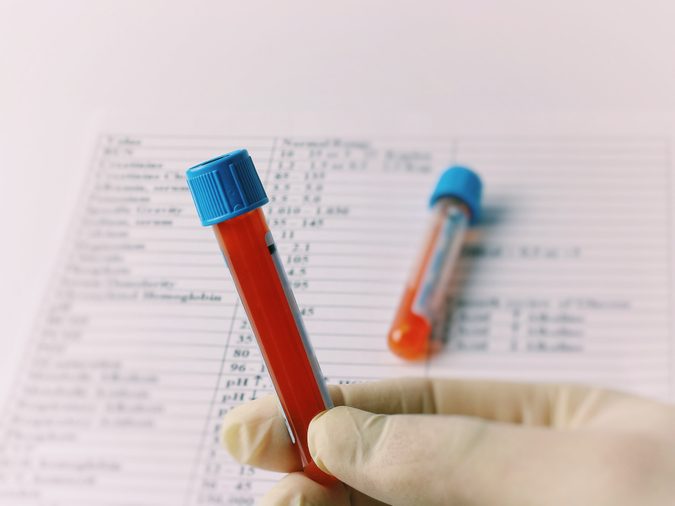
In your 40s: Discuss a PSA blood test
The USPSTF recommends only selectively offering this service based on patient preferences since there are potential screening harms. Dr. Curry adds that it’s considered controversial to give this test more often because “it’s not clear that detecting the cancer early changes the outcome.” The American Cancer Association says men should at least start having a discussion about this test with their doctor by age 45. “For that, we do ‘shared decision making,'” Dr. Curry says, “with the patient and physician weighing the risks and benefits.” Dr. Curry adds that if a man has a family history of prostate cancer or is African American, the risk for developing this type of cancer is higher, so the screening may be necessary. Guys: Don’t ignore these five signs of prostate cancer.
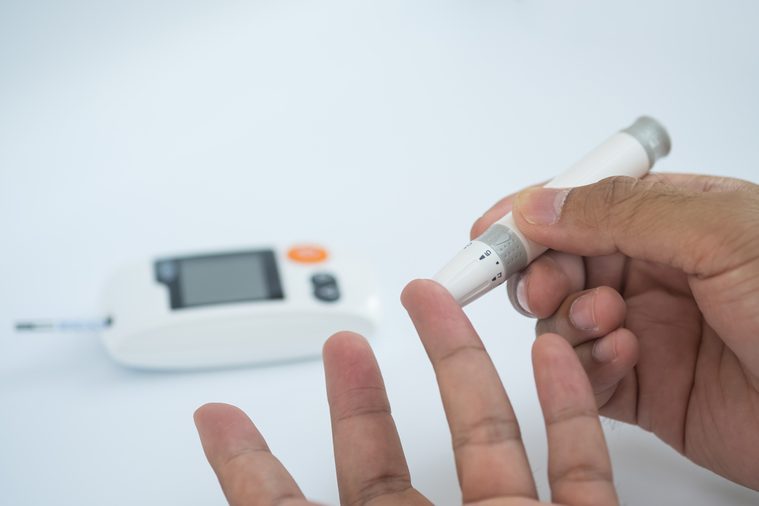
In your 40s: Diabetes screening
The USPSTF recommends screening for abnormal blood glucose in adults who are overweight or obese and between the ages of 40 and 70. It’s important to start early, Dr. Curry says, because diabetes can go undiagnosed for years.
“The average person with type 2 diabetes, the most common type of adult diabetes, has the disease for five years before they are diagnosed,” Dr. Curry says. “During that time, they have either no symptoms or problems like fatigue, so they don’t get checked for anything. But the disease is doing damage to the small arteries in their brain, eyes, heart, and kidneys, and they have no idea.” Don’t miss the 21 healthy habits that could prevent adult-onset diabetes.
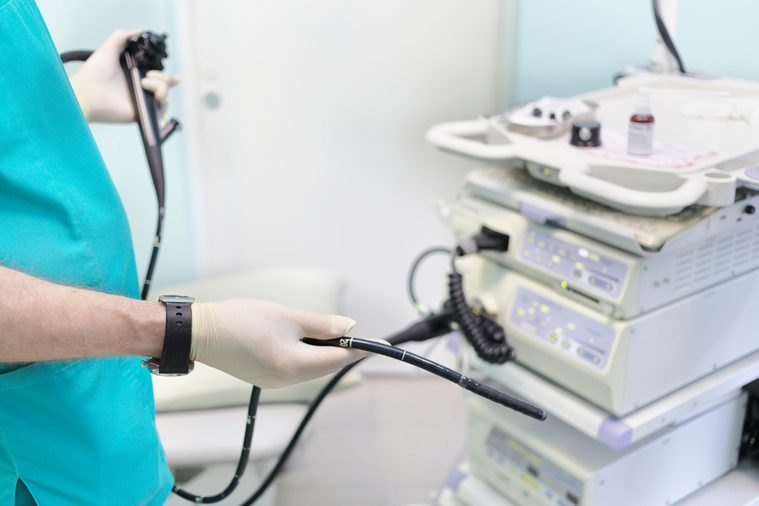
In your 50s: Colonoscopy
“By far, the most important [gastrointestinal] screening test for the average person is a screening colonoscopy,” says Alex Sherman, MD, a gastroenterologist in New York City. “This allows the detection and removal of benign growths called polyps that may otherwise turn into cancer. Of all the screening tests available for colon cancer, this is the most powerful because it can prevent the development of colon cancer in the first place.”
Sherman notes this test is recommended for adults with average risk at age 50. However, African Americans and others at higher risk (a history of colon cancer in the family, for example), should begin colonoscopy screenings at age 45. If your results are normal, you won’t need another colonoscopy for 10 years, according to the American Cancer Society. Check out the secrets that doctors tell their friends about colonoscopy prep.
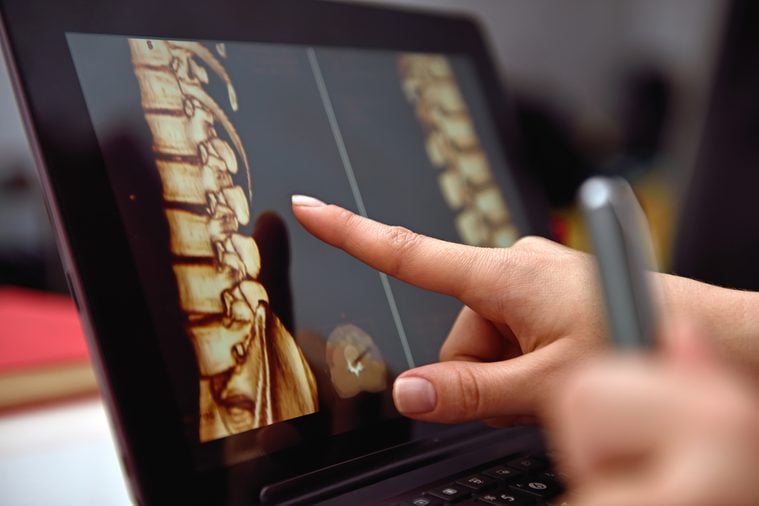
In your 50s: Bone density scan
Women should have their first bone density scan around the time they start menopause, says Abby Abelson, MD, FACR, chair of the Cleveland Clinic’s Department of Rheumatic and Immunologic Diseases. Men should have their first bone density scan around age 65. “However, if a patient is on steroids like prednisone, are getting medications that deplete bone strength, have an eating disorder, have conditions like inflammatory bowel disease, or have fractures that are not associated with trauma, she may need a test earlier,” she says. “This decision should be in consultation with a physician.” And look out for these 9 secret signs your bones are in trouble.
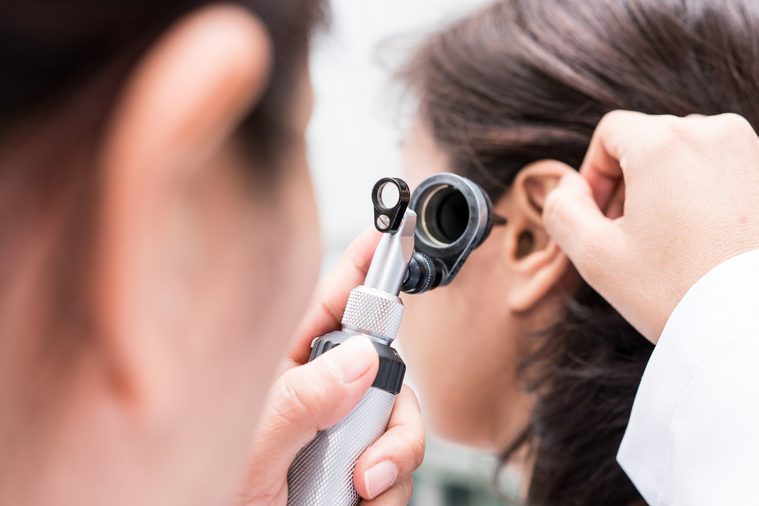
In your 50s: Baseline hearing test
“As we get older, our ability to hear declines,” says Richard Nass, MD, an ear, nose, and throat specialist in private practice in New York City, and clinical associate professor at NYU Langone Medical Center. “It’s a good idea to have a baseline audiogram, or hearing test, beforehand so those changes in hearing can be evaluated as accurately as possible as they progress.” Do you live in one of the cities that have the most noise-induced hearing loss?
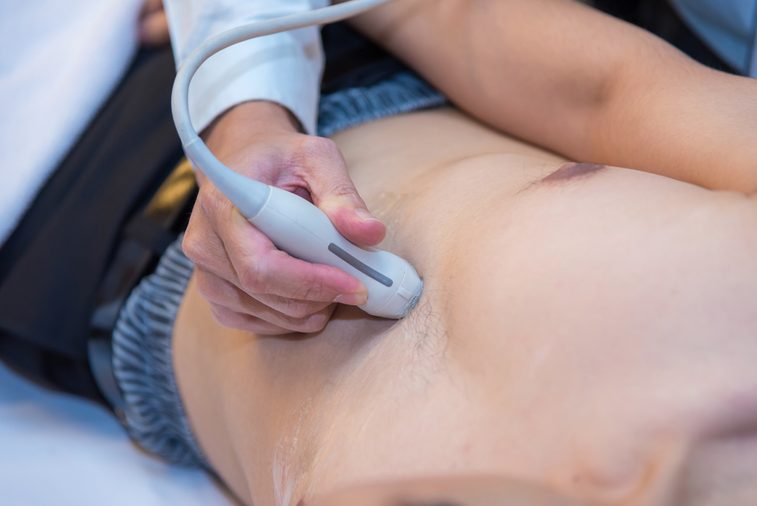
In your 60s: Abdominal aneurysm screening
The USPSTF recommends that men with a history of smoking get a one-time screening to gauge their risk for an abdominal aortic aneurysm—a life-threatening rupture of a major blood vessel in the gut. Tobacco use increases your risk for this aneurysm, as does being male: Men develop abdominal aortic aneurysms more than women, and the USPSTF does not currently recommend women who have never smoked receive this screening. However, talk to your doctor if you’re a woman who has smoked for many years—screening might be a good idea. You can learn more about deadly aortic aneurysms here.
